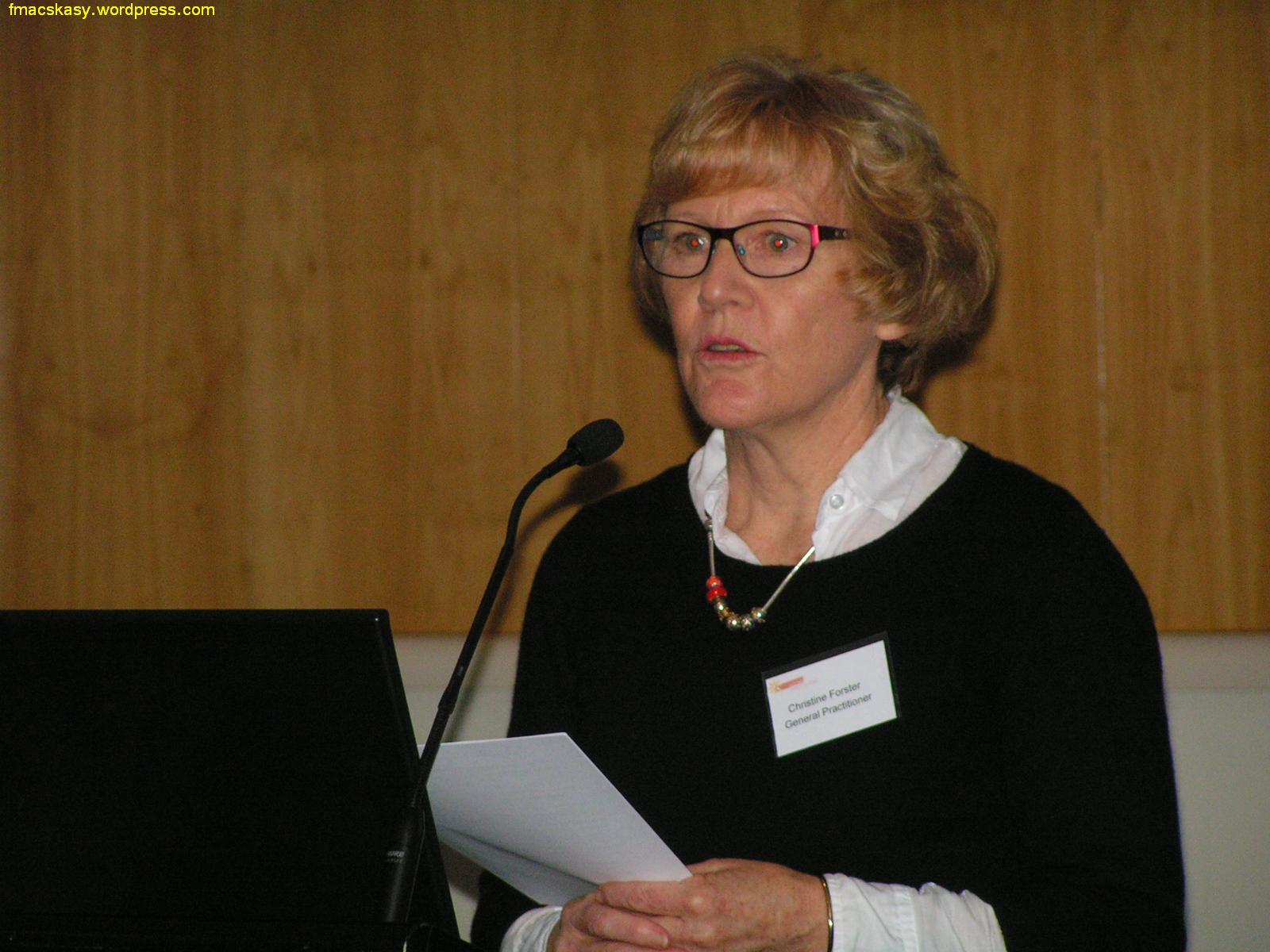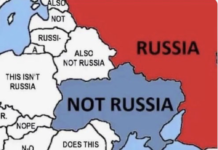.
Continued from: Health Minister circumvents law to fulfill 2008 election bribe?
.
.
NZ, Wellington, 1 August 2013 – At a seminar in Wellington, Labour’s Health spokesperson, Annette King, announced her Party’s new policy to create a new fund for purchasing so-called “orphan drugs” – medicines – for rare diseases.
Labour’s new policy marks a turning point in the critical problem of “orphan drugs” which are not funded by PHARMAC, but which are a matter of life and death for people suffering rare diseases.
The seminar – held by NZORD, the New Zealand Organisation for Rare Disorders – took place at Wellington’s down-town Amora Hotel, and was opened by it’s executive director, John Forman;
.
.
TV personality, Wallace Chapman, hosted the seminar, introducing each guest speaker and keeping a tight reign during question time (he’d make a great Speaker of the House);
.
.
Representatives from the Green Party, Labour, NZ First, and National attended.
Main speakers included,
- Dr Christine Forster, GP
- Dr Alison Davies, Pharmaeconomics
- Kris Gledhill, lawyer, Director of NZ Centre for Human Rights Law, Policy and Practice
- Matthew Smith, lawyer
- Andrew Moore, Associate Professor of Philosophy at the University of Otago
- Andrew Veale, Respiratory & Sleep Specialist
- Dr Greg Coyle, social policy practitioner
- Daniel Webby, patient & patient advocate
- Dr Andrew Marshall, Paediatrician, Clinuical Leader Child Health in Wellington Hospital
- John Forman, executive director of NZORD
First speaker, was GP, Dr Christine Forster. Dr Forster has been a GP for thirty years; held appointments as Chairperson of the Abortion Supervisory Committee, plus involved in committees overseeing assisted reproductive procedures. She briefly participated in the Auckland Health and Disability Regional Ethics Committee;
.
.
Dr Forster began by saying that her role was also about general wellbeing; mental health; and advocating for access to services and resources.
She read out the patient’s Code of Practice,
Every consumer has the right to have services provided in a manner consistent with his or her needs.
Every consumer has the right to have services provided in a manner that minimises the potential harm to, and optimises the quality of life…
“That is our guiding light“, said Dr Forster,”it is a patient-centered focus.”
Dr Forster spoke of PHARMAC’s successes – but added it could do better,
“In general practice we have contact with the decisions that PHARMAC make every day. We are managing the pharmaceutical changes for our patients who have chronic diseases… Managing the change for them is not always as straightforward as I think PHARMAC think. Many are suspicious and wary of change.”
“It’s a worthwhile process because it’s successful in providing routine medications for New Zealanders at a much lower cost than other Western countries. And for most part this process has no harm [or] minimal harm…”
She pointed out,
“So the success is the savings for the pharmaceutical budget so more drugs can be funded and improved access to newer treatments.The unexpected bonus for us is that it has removed the drug reps from our rooms and offices.. So huge benefits and minimal harm.”
Dr Forster addressed the perceived high cost factor of orphan drugs,
“The approach to funding drugs, high cost pharmaceuticals, and drugs for rare disorders is different. There is harm, because essentially what we’re doing is witholding proven treatments. We’re making drugs unavailable. My question is, really, are we making decisions about pharmaceuticals in isolation to the rest of healthcare?”
Dr Forster pointed out that there are other examples of expensive healthcare where there cost-benefit analysis is not considered prior to treatment – so why are pharmaceuticals held in a different light?
“The argument’s often about not funding these drugs… often the view is if they do that, the money will come from someone else; that someone else will have to suffer. But this happens all the time, all the time we are treating a small number of people at huge cost… that’s just the normal treatment.”
Dr Forster said she looks at the outcomes of treatment, not just in a clinical approach with drugs. She said that was a very narrow outcome and in general practice she looked for a much broader sense, of a good life,
“A sense of not being abandoned by society”
Dr Forster concluded by saying,
“At the end of the end of the day, I think, it comes down to what kind of society do we want to live in.And it’s one about making decisions about people’s health and wellbeing is not on cost alone.”
After questions and answers, Wallace Chapman also related his own personal circumstances of carrying a rare disorder – Gauche’s Disease – and the extraordinary steps that his mother took to ensure he received adequate, life-enhancing treatment. He was told by the Dundedin specialist who diagnosed his condition that “there’s nobody else in Otago” who had the condition.
His mother “became a star“, said Wallace. His mother began phoning MPs and ministers, and went to Jenny Shipley, who was then MP for Ashburton/Rakaia, and demanded that he receive the necessary treatment to save his life.
He expressed his appreciation to then-Wigram MP, and Alliance leader, Jim Anderton, who “championed the cause” to get Wallace and other Gaucher’s sufferers the necessary drugs to save their lives. Wallace said his dream was that other people like Freda could also acquire the drugs they needed.
Wallace wondered what might happen if the government took the money away from funding the Waihopai Spybase and spent it on healthcare. He suggested it might be a better world to live in – a comment well received by the audience.
Wallace added that GPs like Dr Forster were the real heroes in our community – especially those that take an interest in such complex, social issues.
Wallace then introduced Dr Alison Davies to the audience;
.
.
Dr Davies has a diploma in Pharmacy, diploma in Hospital Pharmacy, and Masters in Medical Science (epidemiology). She has practiced as a pharmacist; clinical researcher for 17 years; and worked in pharmaeconomics for a pharmaceutical company. She has taught post-graduate students at Otago University and is a member of Breast Cancer Aotearoa Coalition. She has represented this patient group voluntarily, gain better access to medicines.
Dr Davies began with the criteria used to make decisions in healthcare – particular ‘tools’ such as “cost effectiveness analysis and cost utility analysis.
Dr Davies compared different systems used in Australia (PBS); the UK (NICE), and PHARMAC in New Zealand; all three take “cost effectiveness” into consideration as a criteria;
.
.
Dr Davies pointed to “...a real tension between making decisions about a population’s health and making decisions about an individual’s health.”
“We have a choice about which costs to include...” Dr Davies referred to a Definition of Societal Perspective,
‘Includes everyone affected by the intervention and counts all significant health outcomes and costs that flow from it, regardless of who experiences the outcomes or costs’
– which means that everyone in society, everybody’s costs and outcomes which are affected by this intervention are included. Now that’s not how… PHARMAC does it’s analyses. It chooses a perspective of the healthcare system, so only includes the costs that accrue to the healthcare system plus patient contribution to the healthcare, co-payments, that sort of thing. So there’s no inclusion of loss of productivity, personal costs that are outside of health, etc. So there’s no consideration for you getting back to work; the time-costs associated of your caring for a sick or disabled person, your leisure time…”
Dr Davies referred to a person’s “quality of life”, using the World Health Organisation definition as “physical, social and emotional aspects of a patient’s wellbeing that are relevant and important to the individual“.
Dr Davies discussed cost-effective thresholds in the UK and Australia and asked,
“Does PHARMAC have a cost-effectness threshold?
Pharmac maintain they have no cost-effectiveness threshold for funding of medicines.”
However, she questioned that assertion and noted a reference to a de facto threshold in a 2012 NZ Medical Journal.
This impacted on what treatments could or would not be ultimately funded and did not take into account needs such as rare diseases and orphan drugs, she said.
Dr Davies said that breast cancer had 50 types, and the “commoness” of this disease could actually be made up of several rare variants. So we could all have a “rare disease”.
Dr Davies said that “orphan drugs” have a high cost but there are often no alternatives and are often lifesaving,
“That’s where the rule of rescue” comes in.”
Dr Davies compared sea rescues that often cost over a million dollars and we “don’t blink a eye and we all think that’s a great thing to do“. She called it a human impulse or imperative to save one individual.
The rule of rescue, Dr Davies maintained, could equally be applied to saving lives by funding rare medicines.
“We need to have a fair decision-making process“, she said,
“Health economists don’t yet rule the world, thank god”.
The next speaker was Kris Gledhill, a barrister who worked in London for two decades, working on various human rights cases, mostly for people detained. He lectures at the Auckland University Law School, which includes teaching human rights law. Since January 2012, Kris was the inaugual director of the NZ Centre, for Human Rights Law, Policy, and Practice;
.
.
Kris opened by saying that his approach was through a human rights framework, and launched with this empowering statement,
“The reason why it’s important to talk about rights in this context, I think, is that, if it’s a right, the grey men at the Treasury, in their grey suits, and grey socks and grey underpants,can’t say ‘no’. Because if it’s a right, then it’s something to which you’re entitled and which is enforceable.”
Kris said that were were a number of Treaties and a UN Human Rights Council, whose role it was promulgate our rights, including the right to health. He referred to the rights which all New Zealanders have under treaties such as the UN Universal Declaration of Human Rights (1948); the International Covenant on Civil and Political Rights (1966); and the International Covenant on Economic Social and Cultural Rights (1966).
Kris said that both Covenants were signed in 1978 – when conservative Robert Muldoon was Prime Minister of New Zealand. He said Muldoon was no “leftie”.
Kris specifically pointed to the Convention on the Rights of Persons with Disabilities (2006), and said it had “an awful lot power” because of it’s potential as it had no definition of disabilities. He gave the preamble to the Convention,
“Recognizing that disability is an evolving concept and that disability results from the interaction between persons with impairments and attitudinal and environmental barriers that hinders their full and effective participation in society on an equal basis with others…”
Kris said that the definition of a disability was wide enough that it could cover those with rare disorder, if it interfered with their ability to participate fully and effectively in society.
He said it was a Convention to be made use of.
Kris also said that once a country like New Zealand signed up to an international Treaty (such as those mentioned above) then there was an expectation that domestic law, policy, and practice, would be amended to reflect international human rights standards.
He said that where issues such as healthcare were involved, and resourcing was a question, that signatory States were obliged to use “maximum of available resources” that were available to a particular nation, to give effect to the conventions. “It was not a free choice” – we had an obligation, Kris said.
Kris said that New Zealand’s Bill of Rights Act and the 1993 Human Rights Act, gave effect to New Zealand’s international human rights obligations.
Therefore, Kris said, international law was not separate from New Zealand law, but a part of it. He said this was recognised both by Parliament that made laws and the judiciary that interpreted those laws.
He said that of particular relevance was the 1948 Universal Declaration of Human Rights, which stated everyone had a right to a standard of living, adequate to the health and wellbeing for himself and his family, including medical care and disability. That, he said, was what people believed we were entitled to as far back as 1948. The same Declaration reaffirmed our Right to Life, including extensions to life.
This included medical care in times of emergencies such as pandemics; infant mortality; and disorders that reduce life expectancy. He said this meant a right to live, not just a right to life.
The same Declaration, Kris said, reaffirmed the right not to be subjected to inhuman or degrading treatment. He said that if the consequences of a disorder are inhuman or degrading, then you have a right to have something done about it.
Most importantly, we have a right not to be discriminated against on the grounds of status. “Status” he said, included “anything of a disabling feature“. The right not be be discriminated against meant not to be treated differently in the light of your status.
Kris said that New Zealand had an obligation to ensure the highest possible standard of health. He pointed to the International Covenant on Economic Social and Cultural Rights which strated that citizens of signatory states (ie; New Zealand),
” recognize the right of everyone to the enjoyment of the highest attainable standard of physical and mental health”
and,
“the steps to be taken by the States Parties to the present Covenant to achieve the the full realisation of this right shall include those necessary for: … (d) the creation of conditions which would assure to all medical service and medical attention in the event of sickness”
He repeated that this was a right, and not a choice by the government. He stressed the point that, that under Article 15, “everyone” had the right “to enjoy the benefits of scientific progress and it’s applications.”
“Therefore the grey men in the Treasury can’t say ‘no’.” The resources-based argument, Kris explained, was designed for developing nations and not rich nations like New Zealand.
Kris said that it’s “grass roots” organisations – and their mothers (which elicited quiet laughter) – that have to make use of these rights. He said we need to raise these international obligations in any legal challenges undertaken.
One such means for a legal challenge was to lay a complaint with the UN Special Rapporteur on Health. The Special Rapporteur, he explained, receives complaints from individuals, or groups in society, who have been affected by a denial of the right to health, or componants of health.
Only one complaint has ever been made from New Zealand to the Special Rapporteur, he said, and this facility could be better used by those who feel discriminated against.
Kris encouraged those present to use the international rights he had outlined because otherwise, “if you don’t use them, you actually don’t have them“.
Wallace then opened the floor and asked for questions.
This blogger asked Kris if the international treaties he had outlined have the same weight as free trade agreements, where member states can take disputes to legal tribunals for judgement?
Kris replied,
“Yes, they’re international obligations; they’re the same as any international obligations including the free trade international obligations. And the point is that those free trade obligations, the treaties that we’re signing up to there are all signed up to in the context that there is an existing, long standing human rights framework. So the free trade agreements do not overtake the international human rights framework. They exist in the context of the existing and enforceable human rights framework.”
At that moment, I thought of the other forms of discrimination that National was engaging in – such as punitive new policies against welfare beneficiaries. Could forcing beneficiaries to undertake drug tests or use contraception be a form of discrimination that could be litigated at an international disputes tribunal such as the UN Special Rapporteur on Health?
To be continued at: Opposition parties work together on “orphan drugs” (part rua)
.
*
.
Copyright (c) Notice
All images are freely available to be used, with following provisos,
* Use must be for non-commercial purposes.
* Where purpose of use is commercial, a donation to NZ Organisation for Rare Disorders is requested.
* At all times, images must be used only in context, and not to denigrate individuals or groups.
* Acknowledgement of source is requested.
Previous related blogposts
Priorities? (19 Oct 2011)
Terminal disease sufferer appeals to John Key (12 Nov 2012)
Terminal disease sufferer appeals to John Key – Update & more questions (28 Nov 2012)
Health Minister circumvents law to fulfill 2008 election bribe? (18 Dec 2012)
Johnny’s Report Card – National Standards Assessment – Compassion (9 Jan 2013)
“There’s always an issue of money but we can find money for the right projects” – John Key (20 Jan 2013)
“One should judge a society by how it looks after the sick and vulnerable” – part tahi (4 March 2013)
“One should judge a society by how it looks after the sick and vulnerable” – part rua (4 March 2013)
“One should judge a society by how it looks after the sick and vulnerable” – part toru (4 March 2013)
Additional
UN Special Rapporteur on Health
.
.
= fs =












